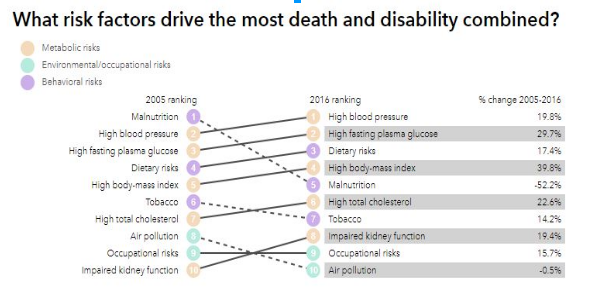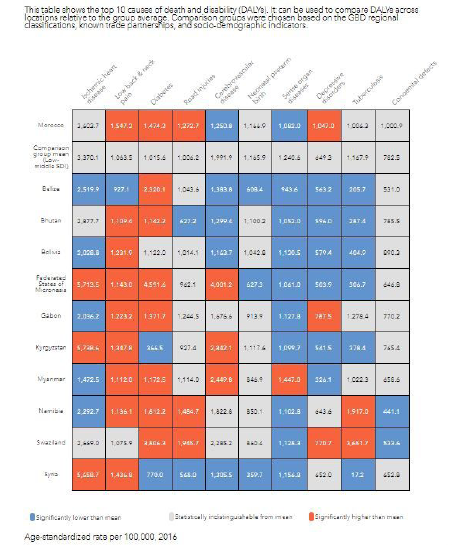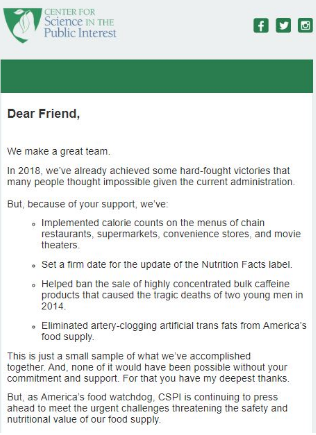Due to plummeting demand for dairy milk, 52 New York dairy farms have lost their wholesale contracts and have no one lined up to buy their milk beginning this July. As CBS New York notes, the average American drinks 37 percent less milk now than they did in 1970. This can be credited to a few things; opt for milk alternatives for environmental or health reasons, (lactose intolerance).
With milk alternatives filling up retail shelves, made from everything: cashews, coconuts, peas, rice, oats, hazelnuts, hemp, flax, macadamia nuts, and of course, soy and almond, ditching dairy milk has never been easier. The rise in demand for milk alternatives is so high that the global dairy-free milk market is expected to reach $14.4 billion by 2020. Talk about an incentive for these dairy farmers to make a switch to plant-based milks! Source: www.onegreenplanet.org ( June, 22 2018).
More health data is available; food is a key factor for health:
The Institute for Health Metrics and Evaluation, (www.healthdata.org) an independent global health research center at the University of Washington has data visualization tools, on the Global Burden of Disease (to measure what prevents us from a long life in good health), provides scientific research to the Sustainable Development Goals and recently collaborated with the Bill & Melinda Gates Foundation for an indicator report. Example: for Morocco, I selected 2 visuals:

Figure 1.
And as figure 2, see below, Morocco compared to other countries:
How do causes of death and disability compare to those in other locations?

Figure 2
3.The relevance: the science of agriculture – the oldest and largest human intervention in nature- is studied from all axes but, in my opinion, could benefit from data intelligence combined with market developments, Facts matter, but perception, stories and advocating are more and more factors influencing the demand. Transparency of the supply chain, sustainability and respectful sourcing are key to commercialization; eco-ethical values are in the consumers mindset. Example: an email I received today:

The sender: The Center for Science in the Public Interest (www.cspinet.org), and has been a strong U.S. advocate for nutrition and health, food safety, alcohol policy, and sound science.
Their reporting influences consumers’ behavior and social media awareness is a multiplier for their messages.
Another example of consumers influencing business: the takeover from Monsanto, by Bayer caused activist investors to address this merger as a ‘marriage in hell’ -and Bayer retired the Monsanto name, pictured as one of the most hated companies in the world ( source: Organic Consumers Association, International Foundation for Organic Agriculture (IFOAM) Organics International).
Being a global leader in Agriculture -the largest maker of genetically modified (GMO) seeds, giving the company a very important position in the control of the world food supply, raising concerns by farmers as well. And Bayer’s motto: ‘Research to Feed the Growing Global Population’ and ‘Innovate for a Sustainable Future’. 14,000 R&D employees and a budget of 4,5 billion euro are driving science and technology. Another global player, Dupont, is an impressive stakeholder as well: https://s21.q4cdn.com/813101928/files/doc_factsheets/agriculture/Agriculture-Fact-Sheet_10.6.pdf. At SULA NYC our commercialization is nowhere near these industry giants. But we do manage to successfully market products with ingredients you can eat. How safe is that?
Argan oil as the ‘Green Medicine’ and a driver for Moroccan Agriculture.
The production of Argan oil is, according to our research, 0,04% of the global production of vegetable oils, with Algeria, Israel, and Tunisia on the rise as producers of argan oil, and with the Maroc Vert plan, the projected share of Argan oil in the global vegetable production in the near foreseeable future may double.
The versatility of the Argan kernel, cosmetic, or roasted for culinary delight can be optimized by more research on the benefits, and for Medical Therapies GRETHA ( Groupe de Recherches sur les Effets Thérapeutiques de l’Huile d’Argane, www.gretha.ma ) is the independent team of noted scientists researching and conducting clinical trials with Argan oil. Pr. Mourad Errasfa, GRETHA’ s founder and coordinator, sees Argan oil as the ‘Green Medicine’ and a driver for Moroccan Agriculture. Join him in his quest?
